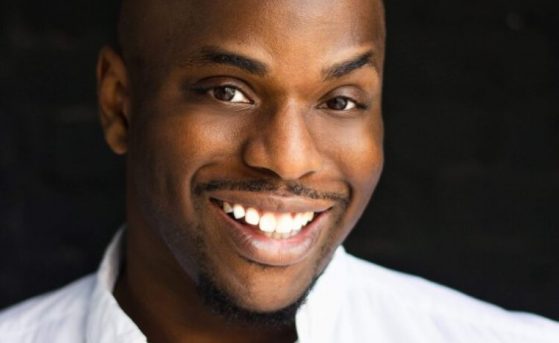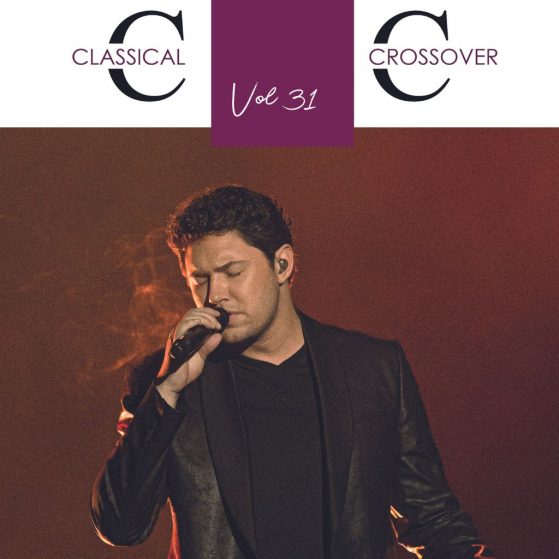
It’s easy to be caught up in a sense of awe when listening to Patrick Dailey. His voice shimmers, floats, and warms the heart when he sings. When he talks, Patrick equally captivates with his vast knowledge of music history and genuine passion for his craft.
Patrick remembers being told that there was nothing quite like performing on the America’s Got Talent stage, the unique feeling of energy that vibrates from the audience but he tells us, “I would throw it back a little bit. Most people would say, there’s nothing like that energy because of the spaces in which they frequent, or they’ve come up in. To me, although it was different, it was something sort of akin to responses that I’ve had growing up singing and training in the black church… I was like, ‘Oh, honey, this is like church.’”
The words Patrick uses to describe his career are “abnormal, uncharacteristic, untraditional.” As a countertenor, his voice is one of the rarest and it took a village of committed friends, family, and teachers to mold him into the performer he is today. “I always talk about the Academy of the black church. That is the rearing of so many artists… there is a particular training and I don’t want to say a specialized training but a particular sort of experience that is held within the black church training, which is actually very vast.”
His talent was first recognized by “one of the mothers of the church, Martha Long” at three- years old. “She called everybody and she had everybody stop what they were doing to listen to me sing at three. Like, LISTEN to his voice.” She decided that Patrick should be part of the children’s choir but was reminded the age minimum was five. “She’s like, ‘I don’t care he’s gonna be in the church choir.’”
Patrick’s mother was a teacher and his education was very important to her. “Although I lived and grew up in the suburbs, she sent me to schools in East Nashville in the urban spaces because she wanted me to really be able to be connected to community… I had a village. So she wanted to ensure that I had my village and my space, but also being able to be in community with my folks, and never to lose that touch.”
Music programs were being cut in many schools at the time so they found other avenues. “I was a part of what’s called the Celebration Youth Chorus.” The group was led by Margaret Campbell Holman to ensure choral music education for Nashville Public school children. There were growing pains for Patrick but music helped him. “I had the artistic outlet, and the creative outlet to help me through that.”
Patrick eventually was part of his own Gospel group Shabach Praise. “I’ve always loved groups. I’ve always loved choirs. The intention of Shabach Praise was originally to be a chorale. I wanted a choir. I’ve always believed in uniting voices, uniting purposes, again, building community through singing. That was the goal.” At his first rehearsal, only eight people showed up, and then that whittled down to six. “That six became exactly what we needed. So we didn’t have to be a choir, we could be a really clean ensemble. We didn’t always have instrumentalists. So we really heightened our skills in acapella singing, to make it make sense in the spaces that we were going into.”
The group had a lot of interest from the Gospel industry but Patrick was set on attending Fisk University, home to the Fisk Jubilee Singers. The school is famed for musical excellence and in particular, the singers were Ambassadors for American music. “But then something happened. Not only did I start getting interested in other black college choirs, but then there came a tour from a college out of Baltimore, the Morgan State University Choir. They came to a church right outside Nashville. I heard these voices and I was blown away. Not only was I blown away by the full voices of that choir, but there were also three voices that stuck out. Three men came out singing high. They were countertenors. My mouth just dropped, and my eyes were bugged out. I said That’s me. That’s my sound. I heard myself for the first time. And so it was like ‘Well, Fisk is great. But I’m going there. I don’t know, I’ve never been to Baltimore, I don’t know anything about it but whatever that is, I’m going there’ because I hadn’t heard singing like that. And I had not seen myself in a way like that.”
Unbeknownst to him, Patrick’s mother had also been impressed by the choir and was silently praying that Patrick would have the chance to study alongside one man in particular. “So as I’m saying to myself, ‘God, I hear myself, I hear my voice. I think that is the place I could be.’ My mother’s saying when that man is speaking, ‘God, I pray that my son gets to work with that man’. So fast forward, I’m back at my high school and I’m back in the NSA and one of my little sisters Christina Ray, who actually was in third place on America’s Got Talent a couple of seasons back, a beautiful singer can sing anything. She said, ‘Hey, Pat, you know, everybody knows you want to be a Jubilee singer. You want to go to Fisk,’ (my nickname was Bishop Jubilee)… She said ‘Come and do this show with us’. I was like ‘Heck, yeah!’ I go in there to the rehearsal room and who was sitting there at the table but that man that my mother prayed about.” The man was William G. Crimm. “That man became my voice teacher. He transitioned me from tenor to countertenor. He prepared me for all of the major competitions I did the NAACP ACT-SO, the Grady-Rayam Prize in Sacred Music from the Negro Spiritual Scholarship Foundation, and NFFA Arts, everything I did. He prepared me for all of those, for all my college auditions, and sent me with intentionality and with purpose to Morgan State.”
Things have now come full circle for Patrick who returned to Nashville and now teaches alongside Professor Crimm at Tennessee University. At his request, Patrick put together a group of singers for a special program. The group would go on to become the W. Crimm singers (aka Wakanda Chorale).
Between teaching and performing Patrick will stay busy in 2023. “I’m just grateful again to be able to do all sorts of stuff. Being in Nashville is great because you have access to doing session work too.” He enjoys wearing many hats. “I just get to do different things, I get to be opera guy and new music guy… Gospel guy and when you want me to, crossover guy, when you want me to conductor guy when you want me to teacher guy, you know, family guy.”








